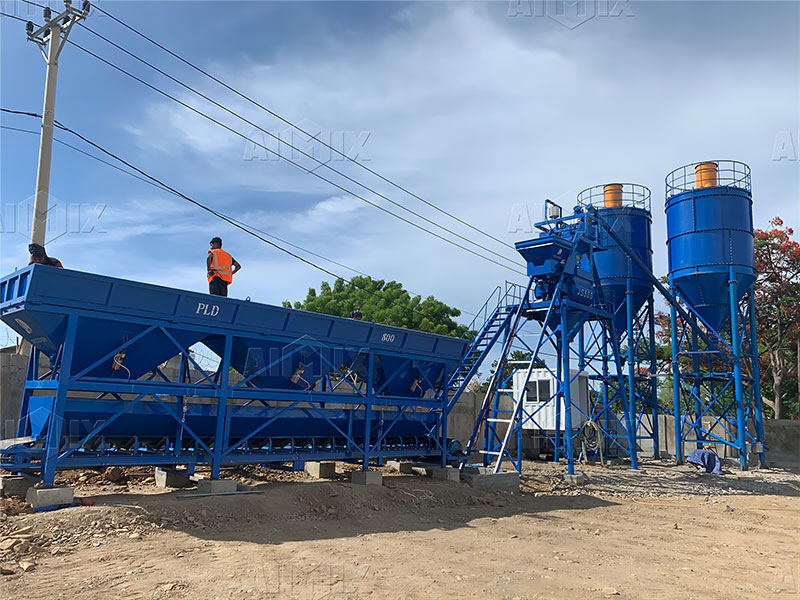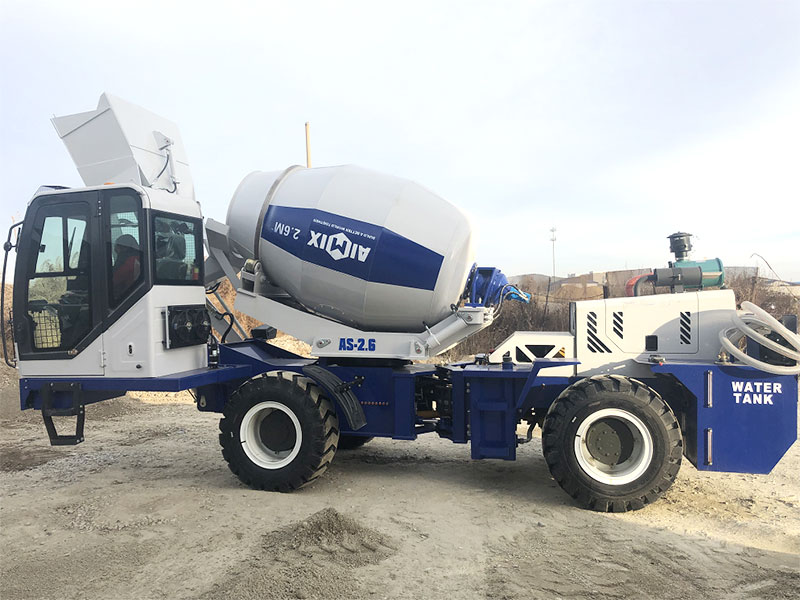Concrete, a fundamental building material, plays a crucial role in construction projects worldwide. The production of high-quality concrete requires a sophisticated combination of materials and equipment. From raw material preparation to the final mixing and delivery of the product, concrete production involves a series of well-coordinated processes.
Batching Plant
At the heart of concrete production lies the ready mix concrete batching plant. This facility is responsible for proportioning and blending the key ingredients of concrete: cement, aggregates, water, and admixtures. Batching plants come in various types, including stationary and mobile units. The efficiency of the batching process directly influences the quality and consistency of the concrete mix.

Cement Silos
Cement, a primary binding agent in concrete, is stored in cement silos. These tall, cylindrical structures keep the cement protected from environmental factors such as moisture and ensure a continuous supply to the batching plant. The capacity of the silos varies, depending on the production scale and requirements of the concrete plant.
Aggregate Bins and Conveyors
Aggregates, which include sand, gravel, and crushed stone, constitute the bulk of concrete’s volume. Aggregate bins store these materials in separate compartments, and conveyors transport them to the batching plant. Proper storage and handling of aggregates are crucial for achieving the desired mix design and concrete strength.
Mixers
Concrete mixers are the workhorses of the production process. They blend the cement, aggregates, water, and any additional admixtures to create a homogeneous mixture. There are various types of concrete mixers, such as drum mixers, pan mixers, self loading concrete mixers, and twin-shaft mixers, each with its own advantages and applications.

Admixture Dosing Systems
Admixtures are chemical compounds added to the concrete mix to enhance specific properties, such as workability, durability, and curing time. Admixture dosing systems precisely inject these additives into the mix, allowing for better control over the concrete’s performance characteristics.
Water Heating and Cooling Systems
Maintaining the right temperature during the concrete mixing process is essential for achieving optimal strength and workability. Water heating and cooling systems regulate the temperature of the mixing water, ensuring that it meets the desired specifications for the concrete mix.
Concrete Transportation Equipment
After the mixing process, the concrete must be transported to the construction site promptly. Concrete transportation equipment includes transit mixers and concrete pumps. Transit mixers have rotating drums to prevent the concrete from setting during transportation, while concrete pumps use hydraulic pressure to convey the material through pipelines.
Concrete Placing Equipment
Concrete placing equipment is used to deposit the concrete in its final location. This includes equipment like trailer concrete pumps, conveyors, and chutes. The choice of placing equipment depends on factors such as the site layout, accessibility, and the volume of concrete to be poured.
Concrete Finishing Equipment
Once the concrete is in place, finishing equipment is employed to achieve the desired surface texture and appearance. This includes tools like screeds, trowels, and floats, which smooth and level the concrete surface.
Conclusion
The production of concrete is a complex and precise process that relies heavily on specialized equipment at every stage. From the initial batching of raw materials to the final finishing touches, each piece of equipment plays a crucial role in determining the quality, strength, and durability of the concrete. As technology advances, new innovations continue to improve the efficiency and sustainability of concrete production, ensuring that this essential building material remains at the forefront of construction worldwide. Aimix can supply all the above-mentioned products.